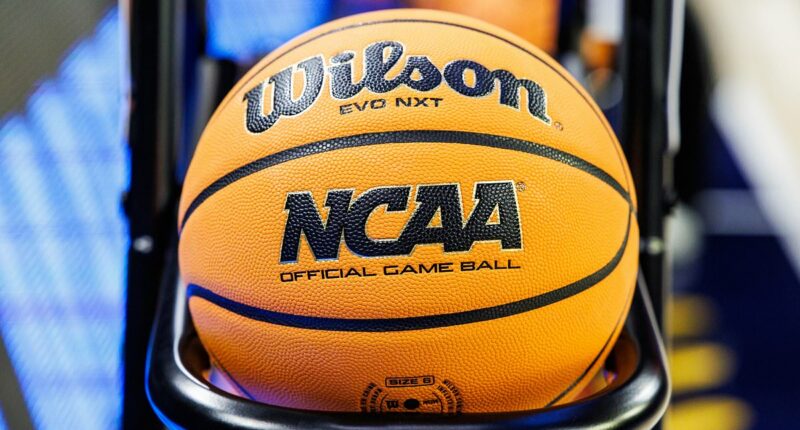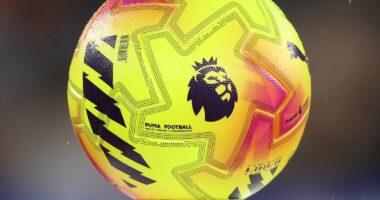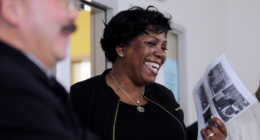Share this @internewscast.com
The NCAA has given the green light to a contentious proposal that permits college athletes and staff to wager on professional sports, sparking mixed reactions among fans.
In the past, student-athletes were prohibited from participating in sports betting at any tier—be it professional, college, or amateur—across sports with championships.
Yet, on Wednesday, the NCAA’s Division I Administrative Committee revealed they had accepted a proposal to revise this longstanding rule, although betting on college sports will still be prohibited.
The potential shift comes amid a growing number of alleged betting violations by student-athletes in recent years.
Josh Whitman, the athletics director at Illinois and the committee’s chair, expressed, ‘During today’s discussion, the Administrative Committee voiced ongoing concerns about the dangers of all forms of sports betting but ultimately voted to ease restrictions for student-athletes in this area to better align them with their college peers.’

The NCAA approved a proposal that will allow college athletes to bet on professional sports

The existing ban on student-athletes from betting at any level could soon be altered according to this new development.
This adjustment lets the NCAA, conferences, and member schools prioritize safeguarding the integrity of college competitions while fostering healthy betting practices among student-athletes engaging in professional sports betting.
The announcement shocked college sports fans across the country, with many taking to social media to express their anguish at the decision.
Taking to X, one wrote: ‘@NCAA proving over and over that they are incompetent. How this could even get approved is insane. Seems like maybe there are other things that need to be addressed as well instead of making this a priority’.
‘If you do not see where this is headed, you cannot be helped. The ‘sports’ that we all love with be a thing of the past in 10 years. All outcomes will be pre-determined, and it will be played out like a live drama. Heck, it may be that way now,’ another said.
Another disgruntled fan said: ‘Great, after we finally give college athletes the pay they deserve we are going to encourage them to blow their NIL deals on sports betting. Nothing good will come of this’.
In August, Oklahoma QB John Mateer found himself at the center of a bizarre gambling scandal after screenshots of his old Venmo transactions appeared online.
The image – which appeared on social media – showed a number of payments sent by Mateer to a friend in 2022. They included the reference ‘sports gambling’, with one even referencing ‘(UCLA vs USC).’
Mateer was a freshman at Washington State in 2022 and NCAA rules ban student-athletes from ‘engaging in sports betting at any level (professional, college or amateur) for any sports that have NCAA championships.’




Fans were quick to voice their concerns on social media shortly after the announcement
The screenshot quickly spread across social media but the quarterback denied any wrongdoing, insisting the payment references were in fact ‘inside jokes’ between him and his friends.
Meanwhile, in the same month, a Pennsylvania high school soccer coach was quietly suspended amid scandal after being caught allegedly gambling with students.
David Zimmerman, a nationally recognized soccer coach at the prestigious Conestoga High School in Berwyn, Pennsylvania, was caught back in January reportedly placing ‘prop bets’ with students on the school’s basketball games.
Zimmerman, who was named 2022 National Boys Soccer Coach of the Year for large public high schools, initially served a brief suspension over the course of a few days last winter following an internal investigation, according to The Inquirer.
The school, which is located in one of the most affluent districts in Pennsylvania, reportedly opened an investigation after learning of the alleged betting through ‘secondhand’ sources in January, and found that the gambling began last year ‘on a limited basis.’
Prop bets consist of wagers placed on specific occurrences or certain players’ statistics during games. It is a form of sports gambling that the NCAA has previously lobbied the federal government to ban.











